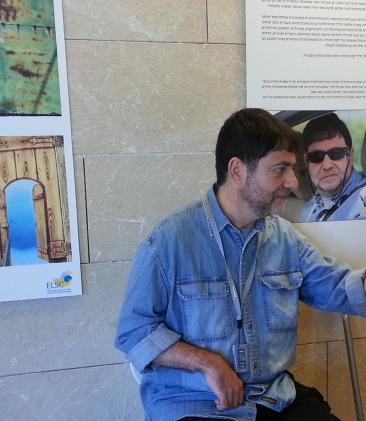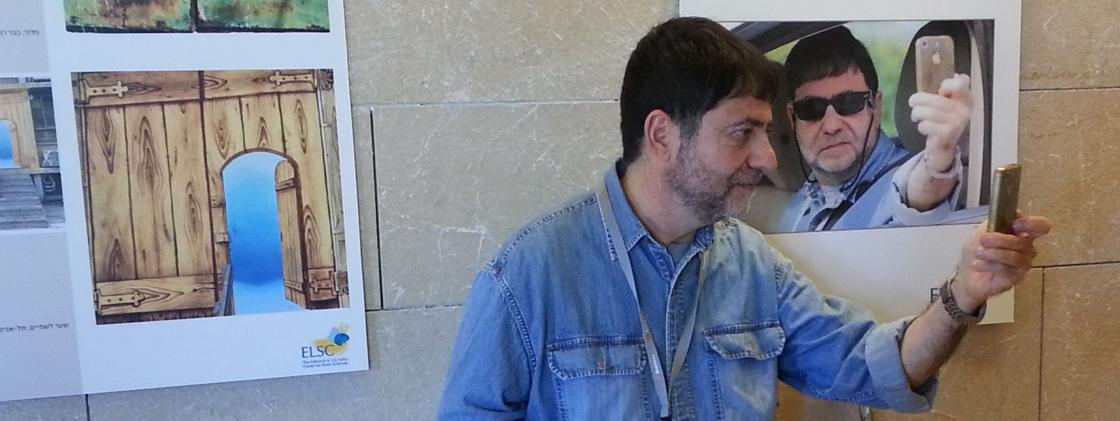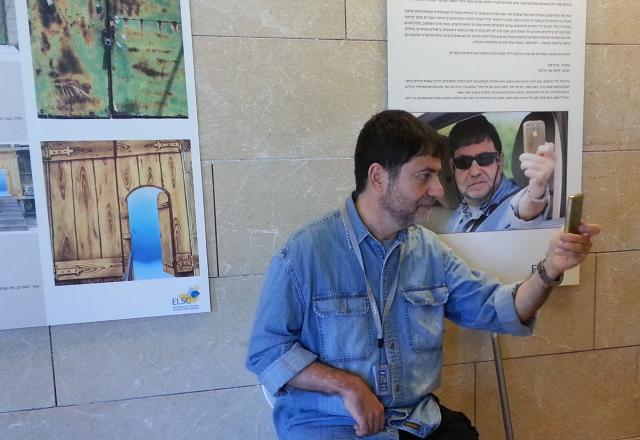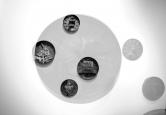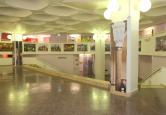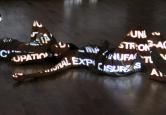Eyal Peled, the television presenter of Masa Olami (Worldwide Journey), suffered a severe stroke in 2008, resulting in damage and paralysis to the right side of his body and in aphasia, a loss of the ability to speak. However, Eyal did not lose the urge to continue his “journeys”. Despite his physical disability, he uses his Smartphone – an iPhone – as a visual tool to communicate the thoughts trapped within his brain. While traveling through the country by car, Eyal stops at various locations to photograph objects that catch his eye. Sometimes he goes back and forth over the same stretch to choose the correct angle for the picture. His handicap forces him to shoot with his left hand through the car window. The connection to the objects photographed, says Eyal, is achieved in two stages: the first is to take a picture of the object in the natural environment. The second is a verbalization of his more personal response to the object. Eyal's associations range from the desire to fly to the desire for grounding, between the yearning for freedom and independence to the feeling of being sealed and closed.
Aphasia is a syndrome that interferes with the production of language, caused by brain damage, especially by a stroke. This occurs in regions called "Brain Language Areas" (Broca's area and Wernicke's area), located in the left hemisphere. Damage to Broca's area, called "motor aphasia", is characterized by difficulty in the production of grammatical sentences. People who suffer from this kind of aphasia speak in short sentences, use a functional vocabulary in a telegraphic manner, and have difficulties in finding the word they want to use. They do comprehend speech, however, and are therefore often aware of their condition. As a consequence, they experience frustration, and avoid verbal communication. Motor aphasia is often accompanied by paralysis or weakness of the right side of the body. Damage to Wernicke's area, called "sensory aphasia", is characterized by fluent but confused or meaningless speech. Sensory aphasia is characterized by problems in understanding as well, so that sufferers are unaware of their disorder. Damage to both areas is called "global aphasia".
The strength of the brain lies in the way the nerve cells that form it work together. Every cognitive and motor activity stems from the constant interaction among brain cells. This interaction, in all its ramifications, is the field of study of theoreticians, computer scientists, cognitive psychologists, and biologists at the Edmond and Lily Safra Center for Brain Sciences. Their research leads to new findings in the fields of human behavior, diseases, and brain trauma, and to new methods of rehabilitation and treatment for people with mental disabilities. One of the many topics investigated at the Center is the study of human language – its uniqueness and structure, and the brain injuries that may cause a potential loss of producing and understanding language.
The exhibition was produced with the support of the Edmond and Lily Safra Center for Brain Sciences at the Hebrew University.
Curator: Michal Mor
Producer: Alona Shani-Narkiss
Eyal Peled was born in Jerusalem and served as an education officer in the army. He has been working as a producer and presenter on television and in film since the end of his academic studies, and in addition guided dozens of tours around the world for many years. In 1994 he initiated and created the TV program "Worldwide Journey with Eyal Peled," in which he merged his loves and skills: touring and guiding, and television.
Eyal was the screenwriter, director, producer and presenter of the program between the years 1994 and 2007.
In April 2008 he suffered a severe stroke during his sleep that affected his speech and motor abilities, which he continues to rehabilitate to this day.




